Who is delaying the nuclear deal - Iran or the United States
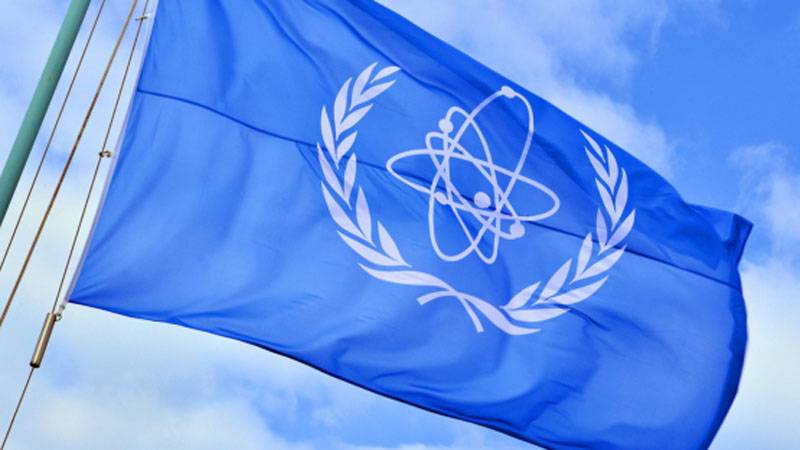
In a conversation loop
At the stage of negotiations, the so-called “Joint Comprehensive Action Plan” was designated by the “Nuclear Deal”, according to which Iran’s large nuclear program was to be implemented. Almost the only retaliatory action on the part of his opponents, primarily the United States, was the lifting of sanctions from Iran. But all at once.
As you know, the deal was curtailed, or rather simply thwarted, by Republican President Trump, which largely predetermined the further radicalization of the ruling elites in Iran. At the moment, the intermediate result of the “atomic divorce” can be considered the coming to power of Ebrahim Raisi, who is much less accommodating than his predecessor, Hassan Rouhani.
Nevertheless, Iran has constantly reminded that it is ready to return to the nuclear deal, which it desperately needs for a real breakthrough in the implementation of a whole series of nuclear projects. First of all - energy, as well as research, medical, water desalination.
As paradoxical as it may sound, the military direction remains in Iran's nuclear program by no means in the first place. Although Washington constantly accuses Tehran of striving to enter the so-called nuclear club of the owners of the atomic weapons.
The realization that direct pressure from Iran is unlikely to achieve anything allowed the Democrats, nominating Joseph Biden for the presidency, to play practically on the Republican field. For many decades, they accused competitors of trying to solve everything by force, reminders of the numerous conflicts and wars declared by the Democratic presidents.
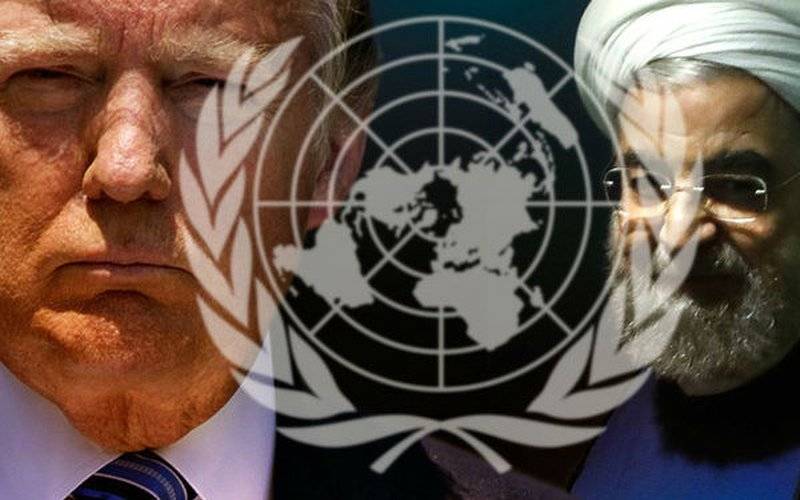
Donald Trump did not manage to get out of such a loop, although, if it were not for the pandemic, he outplayed Joe Biden quite confidently on domestic political topics. The Iranian electoral alignment was both simpler and more complicated, but in the end E. Raisi, not the most radical of the Islamic radicals, simply had no real rivals.
I can't even synchronize watches yet.
However, Iran was regularly reminded of its readiness to return to the deal, and the process began even before moderate Islamist radicals came to power in Tehran. Since April 2021, there have already been six rounds of negotiations concerning or directly related to the JCPOA.
There has been no serious progress, and although both sides constantly say that they are ready to move towards their opponents, there are mutual accusations in parallel, and deliberately unacceptable conditions are being set against each other.
For example, Tehran does not intend to abandon the development of the nuclear industry with obvious violations of the JCPOA until all sanctions are lifted. Moreover, the lifting of sanctions may simply be a condition for Iranian representatives to sit down at the negotiating table at all.
In response, Washington is demanding that Iran immediately return to the conditions under which the deal was concluded in 2015. It turns out that the difference in the initial positions is only that absolutely incomparable efforts are required to fulfill the requirements of the parties.
To lift the sanctions, the Americans, in fact, only need a stroke of the pen, or, as they say now, one click. But at the same time, the United States keeps repeating about the gradual lifting of sanctions. Iran has just a colossal amount of work to return its atomic program not even six, but at least three years ago.
For a long time, Tehran preferred not to advertise their violations of the JCPOA too much - first of all, the increase in the production of uranium enriched to levels that are practically not required in peaceful spheres. And research facilities do not need such volumes as those already produced at Iranian factories.
A little truth doesn't hurt, a little lies too
It should be recalled that before the US withdrawn from the nuclear deal in 2018, all of its conditions in Iran were strictly observed. And only on May 8, 2019, Iranian President Hassan Rouhani announced that Tehran is going to suspend obligations under the JCPOA.
Donald Trump, while punishing Iran, actually gave this country carte blanche for work in the field of military atom. It is characteristic that after Trump's demarche, Iran almost immediately changed its traditional craving for secrecy for excessive advertising of its achievements in the atomic sphere.
And sometimes in Tehran they did not hesitate to bluff, passing off wishful thinking. Experts of the International Nuclear Energy Agency IAEA in Iran were either simply led by the nose or driven to hysterics.
For example, like the one that happened to the head of the IAEA, Argentinean Rafael Grossi (pictured), when he, having no indisputable reason, bluntly stated that "Iran is on the verge of acquiring nuclear weapons."
Many people immediately wondered why Tehran needed such an aggravation?
Indeed, why did Iran need to move as quickly as possible in the development of non-military nuclear technologies, mainly related to energy and medicine?
After all, initially, announcing that they would always be ready to return to the implementation of the JCPOA, Tehran focused on the most important thesis: there can be no question of carrying out work on the military atom in Iran.
By all appearances, Iran did indeed count on what would return in a nuclear deal. Simply because the sanctions are costing him much more than all the benefits of the nuclear program. And Tehran is still very far from these benefits themselves. But they definitely wanted to get stronger positions when they returned to the JCPOA.
It was not for nothing that the other day from Tehran it was announced that
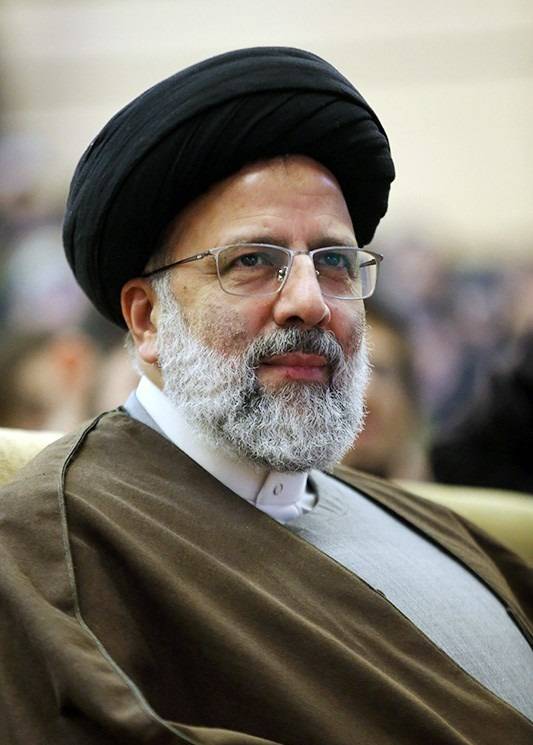
Photo: Tasnim News Agency
However, if Iran under President E. Raisi (pictured) is determined to exit the deal, and with the indispensable statement that the United States is to blame for everything, sympathy abroad, even in China, this will not add to it. Dealing with economic problems in almost complete isolation from the world will be much more difficult.
In addition, the development of the Iranian nuclear program is still active, albeit at the level of bypassing American sanctions, two JCPOA participants are involved, which are still listed as partners in Tehran - China and Russia.
Do not delay, but delay?
Germany and France and even Great Britain were also not opposed to working within the framework of the JCPOA. However, they were embarrassed not only by the negative impact of the sanctions, but also by Iran's open "disobedience". Now there is a feeling that Tehran will no longer back down. At least on key issues, especially in terms of technology development.
Yes, the Iranians can throw off the "extra" excessively enriched uranium, better for money, to slow down some installations. But as soon as there is the slightest chance of returning to the "advanced" state of the nuclear industry, they will certainly try to do it.
Many experts, including your author, believe that the prevailing view that time is working against both Iran and the United States is deeply mistaken. And supposedly delaying the return to the deal is unprofitable for both parties. On the contrary, the United States and Iran have existed for several years in such conditions, adapting to them and trying to extract some dividends from what they have.
Generally speaking, there are no guarantees that with a return to the deal, both of them will receive considerable benefits. All this is just a hypothesis or a positive scenario. Although any of the worst peace, as you know, is better than war.
And today too many are talking about the likelihood of some kind of war between the United States and Iran.
The fact that Iran continues to develop its nuclear program irritates the United States, and embarrasses not only England, Germany and France, but even Russia and China. Equally puzzling is the fact that the Americans are maintaining and even expanding sanctions against Iran. At the same time, neither Tehran nor Washington has so far made a single proposal to Russia on mediation in the negotiation process.
But the West should not forget that delaying the process of re-entering negotiations, after six fruitless rounds, can make the process of the US-Iranian divorce irreversible. Tehran may simply lose all interest in negotiating a nuclear deal at all.
- Alexey Podymov
- caspianbarrel.jrg, kaz.orda.kz, pia.ge, pbs.twimg.com, iaea.org
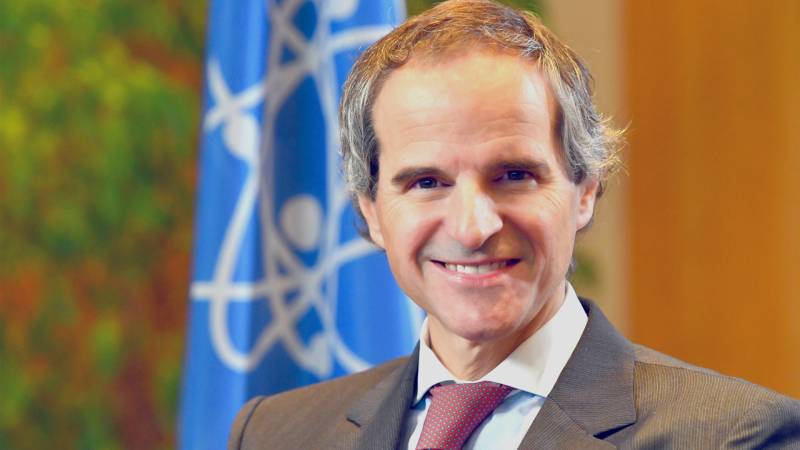
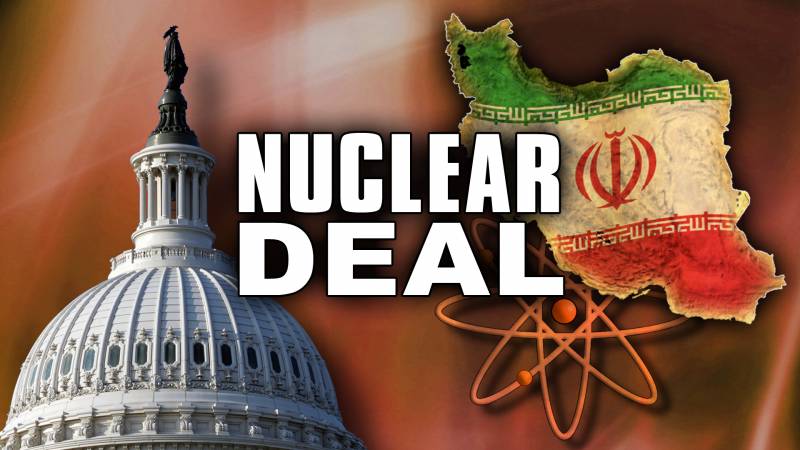
Information